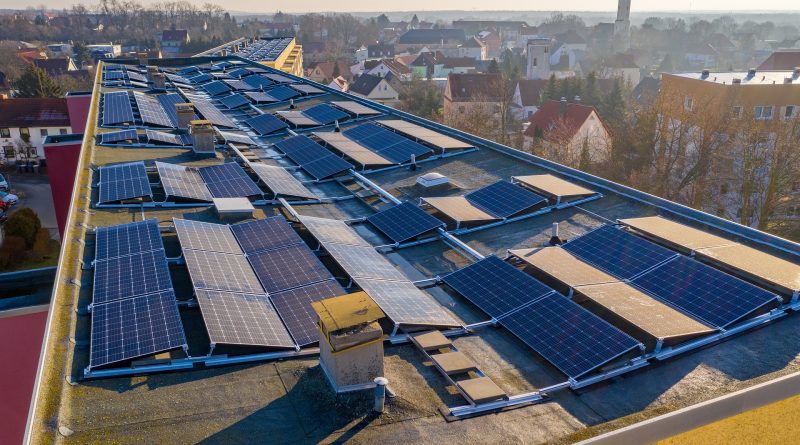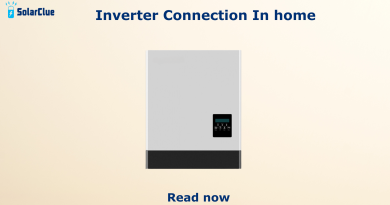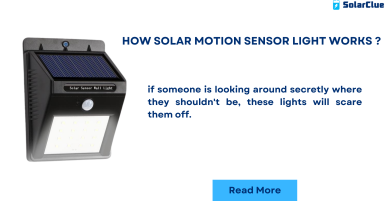How Much Do Solar Panels Cost in 2024?
Solar power has become a popular alternative energy source, with many homeowners and businesses opting for solar panel installations to reduce their reliance on traditional grid power. While the benefits of solar energy are evident, one of the main concerns for potential solar panel buyers is the cost. In this blog, we will explore the various factors that influence solar panel pricing and provide a comprehensive overview of how much solar panels cost.
Factors Affecting Solar Panel Costs
Several key factors determine the cost of solar panels, including:
1. System size: The size of your solar panel system is based on the amount of electricity you need to generate. The more electricity you require, the larger the system will be, leading to higher costs.
2. Type of solar panels: Different types of solar panels are available, such as monocrystalline, polycrystalline, and thin-film panels. Each type has its own price range based on factors like efficiency and manufacturing process.
3. Installation costs: The cost of installation includes not only the panels themselves but also labor, permits, and any additional equipment required for a successful installation.
4. Incentives and rebates: Government incentives and rebates can significantly reduce the cost of solar panel installations. These incentives vary depending on location, so it’s crucial to research the available options in your area.
The Average Cost of Solar Panels
Solar panel costs can vary greatly based on the factors mentioned above. As of 2021, the average price for a residential solar panel system in the United States ranges from $10,000 to $30,000 before incentives. However, it’s important to note that this price can be significantly reduced by local and federal incentives, including tax credits and rebates. Additionally, many solar panel manufacturers offer their own discounts or financing options to make solar energy more accessible to consumers.
Installation Costs
Installation costs typically account for a significant portion of the overall solar panel system price. These costs include the labor required for a successful installation, as well as any additional equipment or materials necessary for connecting the panels to the electrical grid. On average, installation costs can range from $2,000 to $5,000. However, advanced installations or complex roof structures may increase these costs. It’s always advisable to obtain multiple quotes from reputable solar installers to ensure competitive pricing.
Incentives and Rebates
One of the most significant advantages of investing in solar energy is the availability of incentives and rebates, which help offset the initial costs. Federal tax credits, for example, currently provide a 26% credit on the total cost of a solar panel system, reducing the financial burden for homeowners and businesses. Additionally, some states offer their own incentives and rebates, further lowering the upfront expenses. Depending on the location, these incentives can range from a few hundred dollars to several thousand dollars.
Savings and Return on Investment
While the upfront costs of solar panels can seem intimidating, it’s important to consider long-term savings and return on investment. Solar panels generate electricity, allowing homeowners and businesses to reduce or eliminate their monthly electricity bills. Over time, the savings on energy costs can help offset the initial investment, leading to substantial returns.
The exact savings and return on investment will vary depending on factors such as average energy consumption, local electricity rates, and the size of the solar panel system. On average, homeowners can recover their investment within 5 to 10 years. After that, they continue to enjoy free electricity for the remaining lifespan of the solar panels, which can be up to 25 years or more.
Conclusion
Navigate the landscape of solar costs in 2024 with SolarClue® as your trusted guide. Understand the factors influencing solar panel costs, including technology and efficiency. Gain insights into the latest pricing trends amidst market fluctuations and technological advancements. Optimize your investment with advice on selecting the right technology, brand, and system size. Stay updated on market trends and price fluctuations. Explore financing options and government support. Receive guidance on potential challenges and hidden costs. Trust SolarClue® to educate you on the latest advancements and estimate your return on investment. Join our community for shared experiences and ongoing learning. Rely on SolarClue® for transparent and informed solar decisions in 2024.
Frequently Asked Questions
SolarClue® considers factors like technology, efficiency, and brand to determine the cost of solar panels in 2024, guiding users for accurate project cost estimation.
SolarClue® offers insights into the latest pricing trends of solar panels in 2024, considering market fluctuations and technological advancements that impact overall costs.
SolarClue® guides users in optimizing the cost-effectiveness of solar panel installations in 2024, providing advice on selecting the right technology, brand, and system size for maximizing the return on investment.
SolarClue® provides information on current market trends and price fluctuations of solar panels, ensuring users stay updated on developments that may impact installation costs in 2024.
SolarClue® offers insights into government incentives and subsidies for solar panel installations in 2024, detailing eligibility criteria, application processes, and recent updates for users to maximize financial support.
SolarClue® addresses concerns about hidden costs or challenges during solar panel installations, offering guidance on preventive measures and tips, ensuring users are well-prepared for the entire process in 2024.
SolarClue® educates users on different financing options for solar panel installations in 2024, covering upfront payments, loans, and leasing models, enabling users to choose the most suitable financial arrangement.
SolarClue® stays informed about the latest technological advancements in solar panel systems, incorporating information on features and improvements that may impact installation costs or efficiency in 2024.
SolarClue® assists users in estimating the ROI for their solar panel installations in 2024, considering factors like electricity savings, maintenance costs, and overall financial benefits.
SolarClue® fosters a community where users share experiences with solar panel installations in 2024, facilitating knowledge exchange and creating a collaborative platform for ongoing learning and insights.



